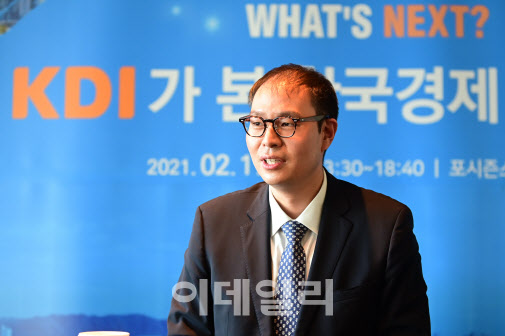|
In an interview with E-Daily held at the Four Seasons Hotel in Jung-gu, Seoul on the 17th, Park Woo-ram, a researcher at the Korea Development Institute, said, “The most important thing when reorganizing the wage system based on performance is that the public sector should take the lead.” “It is regrettable that there is no discussion of reorganization into a performance-oriented wage system, such as job-based pay system, which should be discussed at the same time, although it is increasing and drasticly increasing jobs in the public sector, saying that it should be a welcome pick for employment.
KDI said at the’International Conference Commemorating the 50th Anniversary of KDI’s Opening’ on the 17th, “The government should lead the reorganization of the wage system centered on job and performance for the public sector first, and be the welcome to promote the reorganization of the private sector.” It is necessary to induce a smooth settlement by collecting and disclosing wage information for each position.”
|
One of the chronic problems in the Korean labor market pointed out by KDI on this day is long working hours and low productivity. The working hours per person in Korea is 260 hours higher than the national average of the Organization for Economic Cooperation and Development (OECD). As of 2018, the number of working hours per person employed was 1993 in Korea, whereas in the United States and Japan, only 1786 and 1680 hours, respectively. Germany’s working hours are 1363 hours, which is only two-thirds of the Urini’s. Even for long hours, Korea’s labor productivity is 39.6 dollars, far less than the OECD average of 53.4 dollars. Compared to the US ($70.8), Germany ($66.4), and Japan ($45.9), it was lower. KDI assessed that “the Korean labor market has compensated for the low hourly labor productivity with the quantitative increase in working hours, and it is becoming difficult to efficiently utilize working hours due to such long working hours.”
KDI believes that this situation will continue to intensify as the aging and technological progress progresses. In particular, it is pointed out that the wage system according to seniority is not suitable for these changes. This is because the economic structure inevitably loses competitiveness due to the increase in the proportion of the population receiving higher wages compared to productivity as society gets older, regardless of productivity, in which high wages are paid to those with long years of service. According to KDI, 63.4% of major domestic companies have adopted a high salary, only 18.5% have adopted a job pay, and only 16.4% have applied a job pay.
In particular, the seniority wage system has a negative effect on the employment of young people. According to the results of KDI’s research, the more rigid the wage system and employment adjustment of a business is, the greater the side effects of retirement age extension on new recruitment of young people. In addition, a wage system that does not adequately reflect productivity makes long-term employment of workers burdensome and induces the use of non-regular workers, which negatively affects the quality of employment. Accordingly, KDI explained that the reorganization of the performance-oriented wage system must be carried out.
Research Fellow Park emphasized that the reorganization of the wage system could be a solution to the conflict between regular and non-regular workers. He said, “In public institutions where the total amount of the budget for labor costs is determined, the unilateral regularization of workers has of course a negative effect. It can be solved by paying wages according to year performance.”
However, Research Fellow Park said that reorganization of the wage system should be avoided by mobilizing compulsory force, such as revision of the law. He said, “It should be the last resort to solve the wage system reorganization through a law amendment with coercion. “It is a problem that must be solved with leadership or political power with a responsible attitude.”
|



